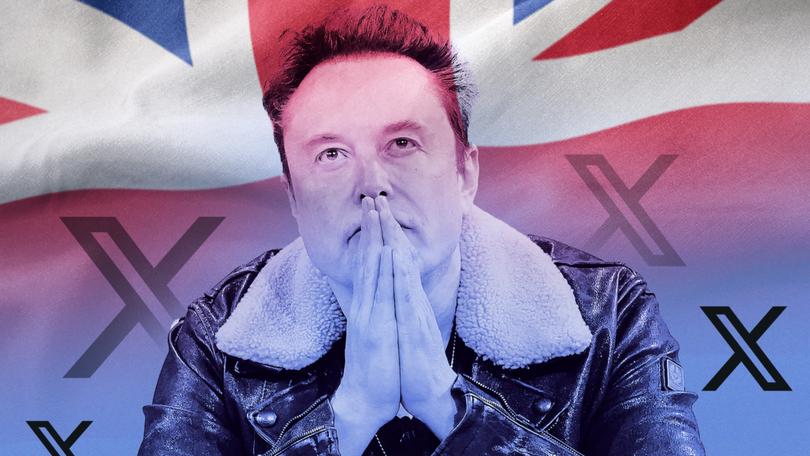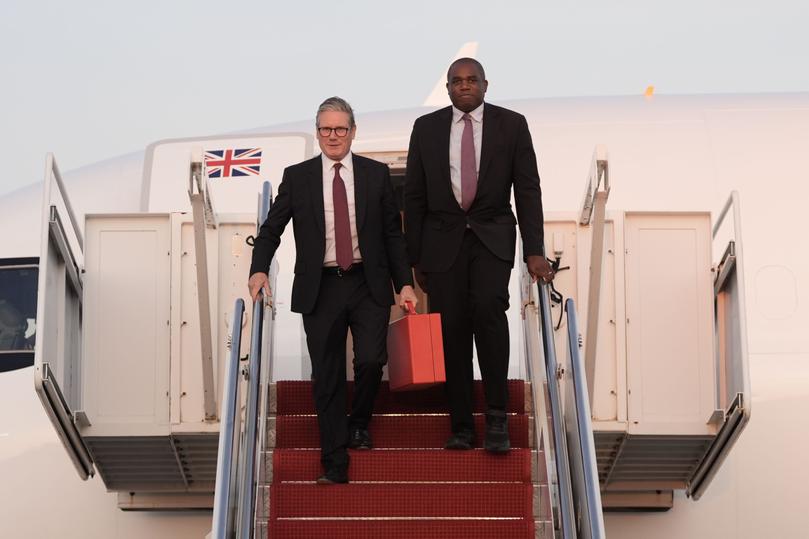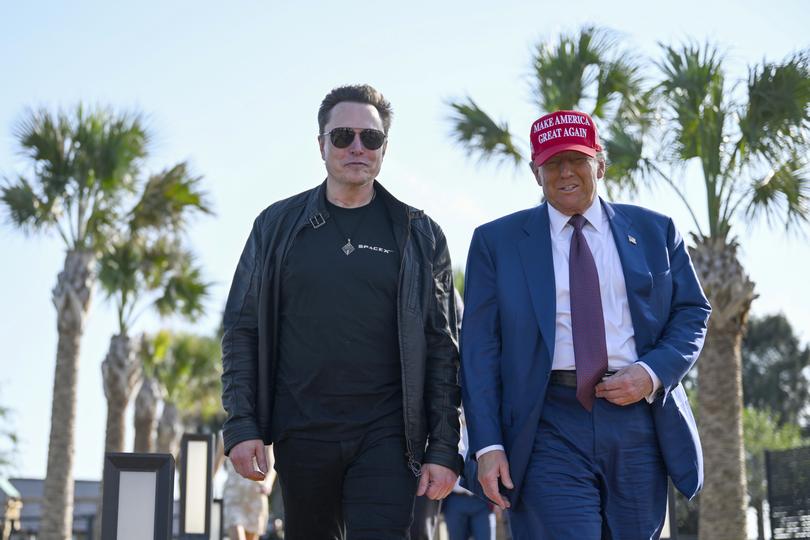No free speech without facts, Brits tell meddling Elon Musk
The UK’s top diplomat has told Elon Musk that free speech must be based on fact, as the spat between Donald Trump’s powerful backer and the government of one of the United States’ closest allies deepens.

The UK’s top diplomat has told Elon Musk that free speech must be based on fact, as the spat between Donald Trump’s powerful backer and the government of one of the United States’ closest allies deepens.
UK Labour has been working frantically to build relationships with key MAGA figures but the ongoing row with billionaire Elon Musk, who has also been actively championing far-right populist parties in Europe, has made for a rocky start to relations between the new governments of Australia’s AUKUS partners.
Musk has been a vocal supporter of the far-right English Defence League founder and criminal activist Tommy Robinson who is in jail for breaching a court order by repeatedly libelling a Syrian refugee.
Sign up to The Nightly's newsletters.
Get the first look at the digital newspaper, curated daily stories and breaking headlines delivered to your inbox.
By continuing you agree to our Terms and Privacy Policy.The Tesla boss has been posting frenetically on the social media platform he purchased, X, calling for the British people to be liberated by the “tyrannical” government led by UK Prime Minister Keir Starmer.
Musk bought X for $US 44 billion complaining about left-wing bias on the platform when it was Twitter. Since his takeover, the social media site amplifies pro-Musk, Trump and populist accounts and the causes they highlight.
Musk has recently latched onto the historical cases of British Pakistani rape gangs abusing young girls and accused Labour of complicity and singled out Mr Starmer because of his role as Director of Public Prosecutions.
Mr Starmer has defended his record saying he changed the rules to increase sexual assault prosecutions, which was backed by the reporter who broke the original stories more than a decade ago.
On Thursday, Foreign Secretary David Lammy also hit back.
“You can’t have free speech if it’s not based on a fact and on truth,” he told journalists at the Foreign Office in London.
“I have real concerns about some of what I see online particularly.”

But Mr Lammy played down suggestions that the British government had raised concerns about Musk’s behaviour with incoming Trump Administration operatives.
“I’m not aware that Elon Musk has come up in those discussions and that’s in part because his portfolio effectively when the transition comes on the 20th (of January), is largely a domestic portfolio,” he said.
The SpaceX owner emerged as a late but powerful backer of Donald Trump in the lead-up to last year’s US election. Having successfully obtained a job overseeing cuts to government spending, he has been constantly by the President-elect’s side.
During his hour-long press conference this week, Trump shrugged off Musk’s behaviour although did not explicitly endorse his financial donor’s comments.
“I know he said some negative things about a couple of people that are running for office, but it’s not so unusual,” Trump said.
The online row between Musk and European leaders is just one of the many headaches to surface across the Euro-Atlantic in the lead-up to the inauguration.
Mr Trump’s threat to take control of Greenland, even by military force, has shocked, bemused and angered figures across Europe.
Asked by The Nightly if he took the threat seriously, Mr Lammy suggested it was a Trump tactic aimed at highlighting Russian and Chinese influence in the Arctic.
“Experience demonstrates that Donald Trump’s intensity of rhetoric and his desire to pursue foreign policy through a lens of peace through strength and through a degree of unpredictability is one of his signatures,” he said.
“On the issues that he’s raising around Greenland, I think what he’s got in his sights is concerns in the Arctic — which we share — about Russian and Chinese influence.
“Of course, there are US troops based in Greenland and a US base.
“He knows that Greenland is a kingdom of Denmark but he also knows that there is a debate in Greenland in relation to their self-determination.
“So I think he knows what he’s up to and centring in his mind is the National Economic Security of the people of the US and the Arctic Circle, which is hugely important to European security in fact.”

Trump has been at loggerheads with the Europeans over what the United States has long complained is the continent’s underinvestment in their defences.
Successive US Presidents have urged NATO members to raise their defence spending but it was only after the first Trump Administration and Russian President Vladimir Putin’s invasion of Ukraine, that member states began lifting their game.
The number of allies meeting the minimum 2 per cent of GDP spending threshold required more than doubled from 10 to 23 between 2023 and 2024 and was up from just three members a decade ago.
But Mr Trump said this week he could demand 5 per cent in defence spending, a level not even the US meets.
Foreign Secretary David Lammy questioned if Mr Trump would be doing so.
“I heard the five per cent,” he said.
“The United States is at 3.38 per cent of GDP so I assume that we would set out a road map to get to that five per cent?”
